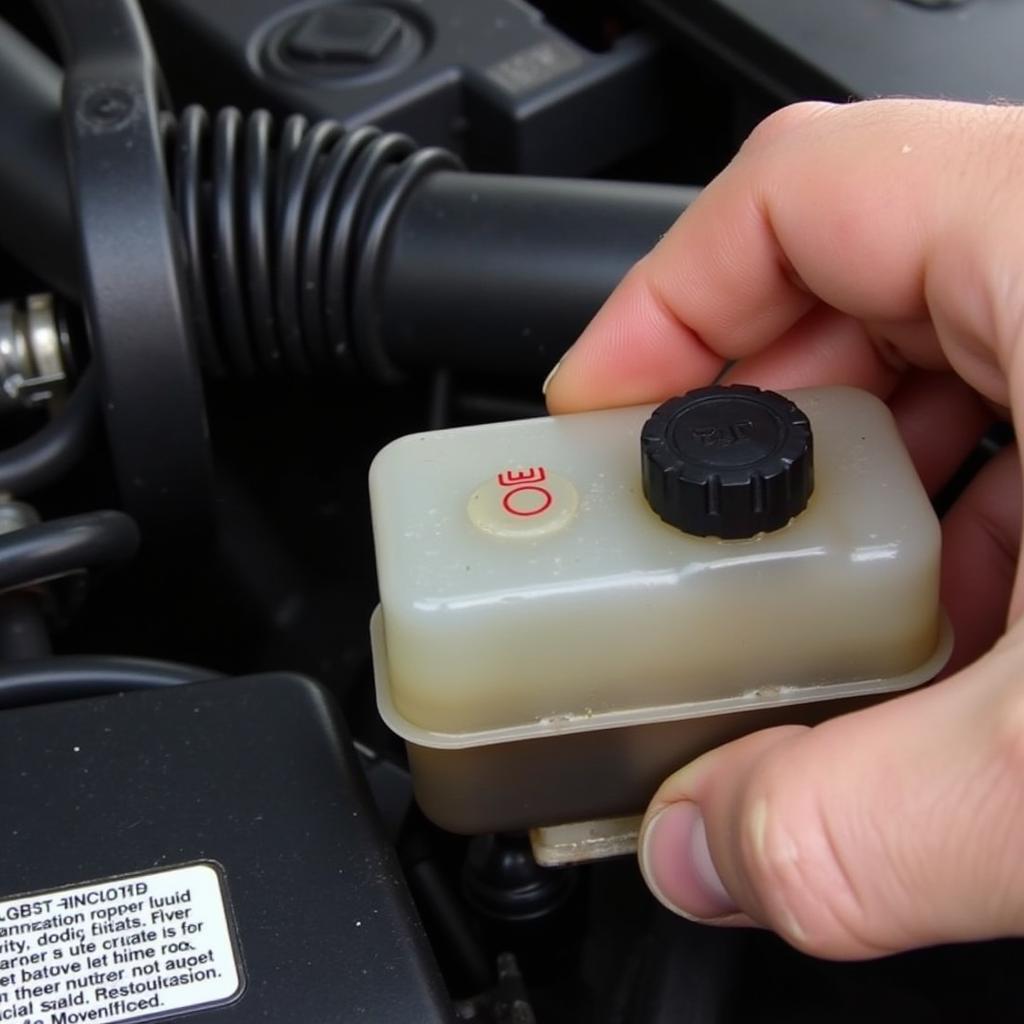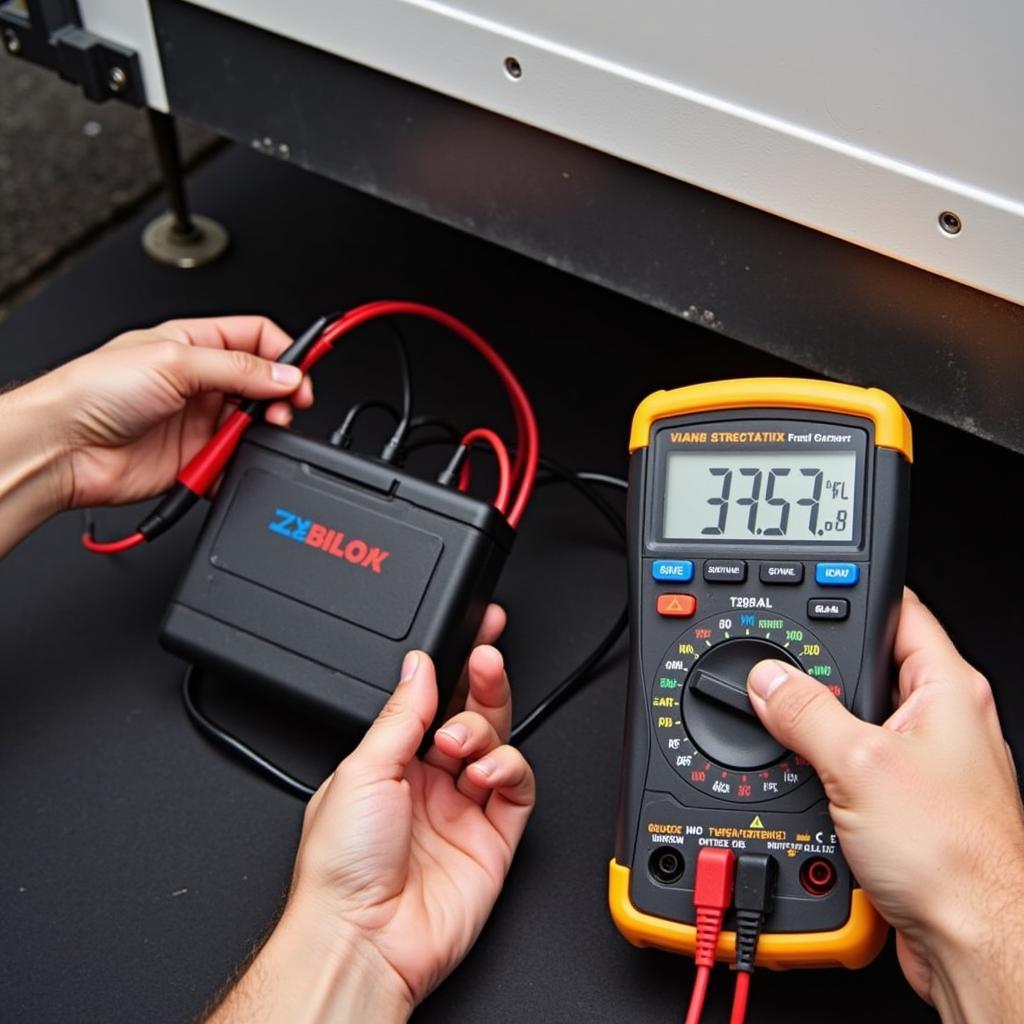If you’re greeted by a glowing brake system warning light on your 2008 Mercury Mariner’s dashboard, it’s a clear sign that something requires immediate attention. This article will guide you through the potential causes and provide insights on how to diagnose and address the issue. Remember, a properly functioning brake system is paramount to your safety and that of others on the road.
Understanding the Brake System Warning Light
The brake system warning light, often represented by an exclamation mark within a circle or parentheses, serves as a general indicator of a problem within your vehicle’s braking system. It’s essential to understand that this light doesn’t pinpoint a specific issue but rather acts as a broad alert.
Common Causes of a Brake System Warning Light
There are several reasons why the brake system warning light might illuminate on your 2008 Mercury Mariner. Let’s delve into the most common culprits:
1. Low Brake Fluid Level
One of the most frequent reasons for the warning light is a low brake fluid level. Your brake system operates hydraulically, relying on brake fluid to transmit force when you press the brake pedal. A leak in the system can lead to a drop in fluid level, triggering the warning light.
2. Worn Brake Pads
Brake pads are designed to wear down over time. When they become excessively thin, a sensor embedded within the pad makes contact with the brake rotor, completing a circuit that illuminates the warning light.
3. Faulty Brake Light Switch
The brake light switch, positioned behind the brake pedal, is responsible for activating your brake lights when you apply the brakes. A malfunctioning switch can disrupt the brake light circuit, potentially causing the brake system warning light to activate.
4. ABS Issue
Your 2008 Mercury Mariner is equipped with an Anti-lock Braking System (ABS). If the ABS module detects a fault within the system, it can trigger the brake system warning light.
5. Parking Brake Engaged
While seemingly obvious, it’s easy to overlook. If the parking brake is even slightly engaged, it can trigger the warning light. Ensure the parking brake is fully released.
Diagnosing the Issue
 Checking Brake Fluid Level
Checking Brake Fluid Level
Step 1: Check the Brake Fluid Level
- Park your vehicle on a level surface and engage the parking brake.
- Locate the brake fluid reservoir under the hood. Refer to your owner’s manual if needed.
- Visually inspect the fluid level. It should fall between the “Min” and “Max” markings on the reservoir.
- If the level is low, add the recommended brake fluid type as specified in your owner’s manual.
Step 2: Inspect the Brake Pads
- With the vehicle safely supported on jack stands, remove the wheel to expose the brake caliper and pads.
- Visually examine the thickness of the brake pads. If they appear significantly thin or worn down to the metal backing plate, they need replacement.
Step 3: Seek Professional Diagnosis
If the brake fluid level is adequate and the brake pads appear in good condition, it’s crucial to seek professional diagnosis from a qualified mechanic. Issues like a faulty brake light switch, ABS problems, or other complex malfunctions require specialized tools and expertise to pinpoint and rectify.
Importance of Timely Repair
Ignoring a brake system warning light can have severe consequences. Driving with compromised brakes significantly increases the risk of accidents and jeopardizes your safety and the safety of other road users.
“Brakes are a critical safety system in any vehicle. Addressing brake issues promptly can prevent costly repairs down the line and, more importantly, ensure the safety of everyone on the road,” says John Smith, Senior Automotive Technician at ABC Auto Repair.
Conclusion
The brake system warning light on your 2008 Mercury Mariner should never be disregarded. While a low brake fluid level or worn brake pads might be the cause, more complex issues could be at play. Remember, timely diagnosis and repair are essential for maintaining the safety and reliability of your vehicle’s braking system.

